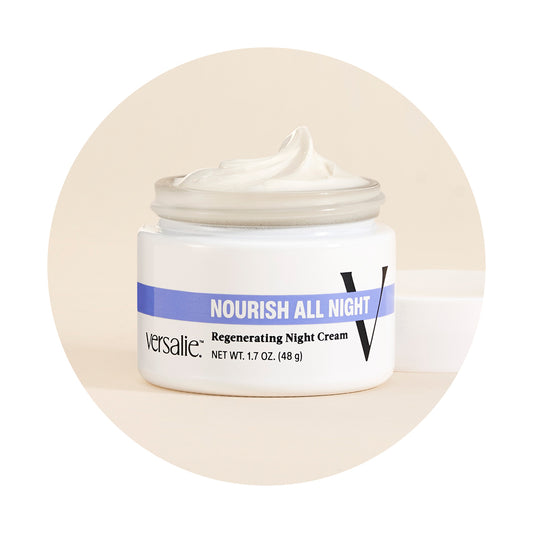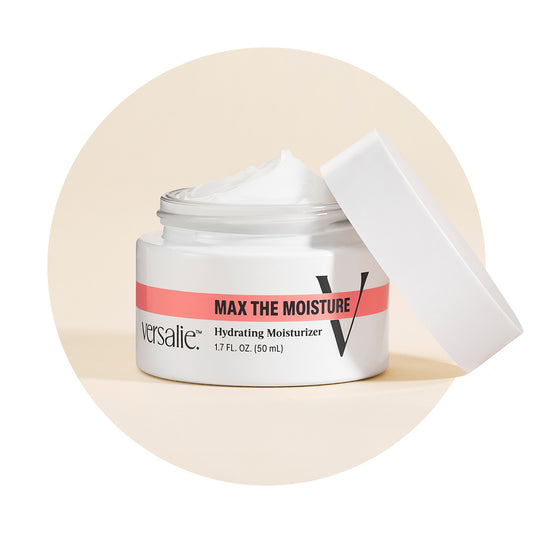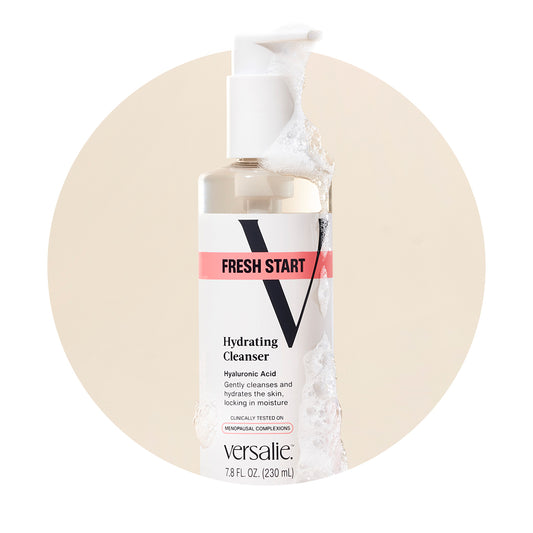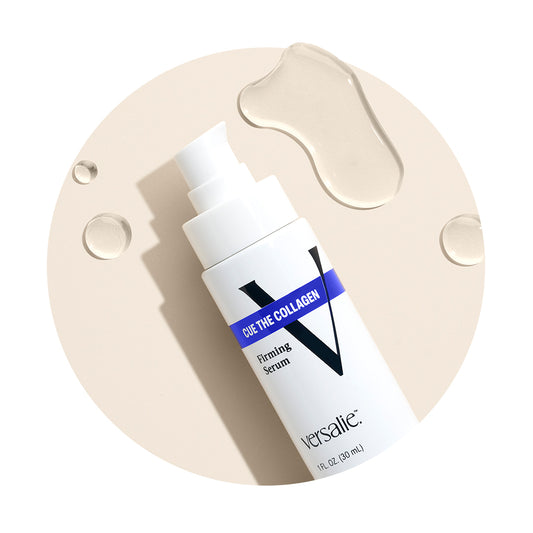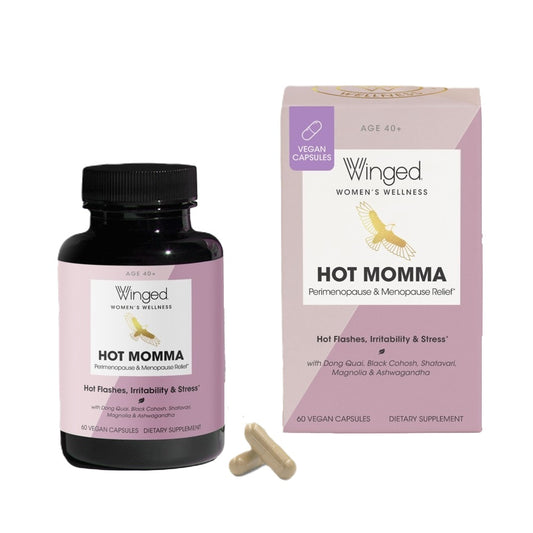Most of us find ourselves balancing numerous responsibilities, from career and family to personal aspirations. Amid this juggling act, maintaining a healthy lifestyle and prioritizing self-care can sometimes take a backseat. If this sounds familiar, you’re not alone.
We know that menopause brings many changes to our bodies and that’s normal for this time of life. But sometimes those changes make us feel less sure of ourselves. This is especially true when we don’t have the time to take care of ourselves the way we’d like to.
Start practicing self-care and self-acceptance to boost that confidence. Instead of obsessing over the number on the scale, focus on how you feel and what makes you happy. If you’re asking yourself how to do that, we’ve gathered some ways for you to put yourself back in the driver’s seat.
Start by focusing on the key areas of a balanced diet, regular exercise, mindfulness practices, and community support. By focusing on these important areas, you can improve your physical and mental health. This can help foster a positive body image and a sense of empowerment.
Embrace a healthy lifestyle for you
During menopause, changes in body shape and weight can affect our self-esteem and body image. Focusing on a balanced diet and regular exercise can be incredibly helpful during this time.
Having a balanced diet during menopause
Navigating menopause can be smoother with thoughtful nutrition and lifestyle choices that bolster both physical and mental health. Eating plenty of fruits, vegetables, lean proteins, and whole grains gives your body the necessary nutrients to support your overall health.
And minimizing processed foods and sugars helps manage weight gain. To help manage hormone changes, eat more foods with antioxidants and phytoestrogens. These foods can include berries, soy products, and flaxseeds. Staying hydrated and limiting caffeine and alcohol can also mitigate menopause symptoms like hot flashes and disrupted sleep.
 Regular physical activity during menopause
Regular physical activity during menopause
Regular physical activity, no matter what type you do, has both mental and physical benefits. It can also improve the way you feel about your body.
- Aerobic exercises like walking or swimming can help manage weight and improve circulation.
- Strength training can help build muscle, maintain a healthy weight, and improve muscle tone.
- Activities like yoga and Pilates can be particularly beneficial for maintaining flexibility and strength and improving mental focus and managing stress and emotional fluctuations.
Another way to stay positive about your body image is to prioritize physical activity that you enjoy. Exercise doesn’t have to be a chore — find activities that make you look forward to moving your body every day. This can only help keep your mind off negative thoughts but can also help reduce stress levels and improve overall health.
Mindfulness and stress management
Practices such as meditation, deep breathing, and mindfulness can help manage stress and improve emotional well-being. During menopause, embracing mindfulness and stress management can help you feel better about yourself. Meditation, breathing exercises, and mindfulness in daily routines help to focus the mind, reduce stress, and create a sense of calm.
These practices can help you manage the emotional rollercoaster often associated with hormonal changes. They also help you boost your self-acceptance and be more kind to yourself. By spending dedicated time on these activities, you can feel more positive, less stressed, and be more resilient and see yourself and your body in a healthier light during menopause.
Finally, take time for yourself each day to relax and unwind without feeling guilty about it. Practice yoga or meditation if they appeal to you, listen to music or get creative with art projects. Give anything that makes you happy the space it deserves.
Regularly engaging in activities that bring you joy helps boost self-confidence and keeps negative thoughts at bay. With some effort and dedication, it’s possible for anyone to maintain a positive body image during menopause!
 Community
Community
Connecting with others who are going through menopause can be very helpful for boosting your body image and overall emotional health. Joining support groups, participating in online forums, or attending group therapy sessions offers a unique opportunity to share experiences, challenges, and successes. These interactions provide emotional support, validation, and often, practical advice on managing symptoms. This shared connection can be a powerful tool in improving self-esteem and helping you feel better about your body during menopause.
Surround yourself with supportive people. Having supportive friends and family members can help us to feel better about ourselves. They can remind us of our positive qualities and help us to see ourselves in a more positive light.
Therapy and counseling
Reaching out to a therapist or counselor can make a big difference in addressing and improving body image issues during menopause. Cognitive behavioral therapy (CBT) can help us recognize and change negative thinking that can hurt how we see ourselves. Here are two ways you can start thinking about things differently:
- Avoid comparing yourself to others. It’s easy to compare ourselves to others and come up short. However, it’s important to remember that everyone is different. We all have our own unique strengths and weaknesses.
- Challenge negative self talk. When you find yourself thinking negative thoughts about yourself, stop and challenge them. Are those thoughts really true? Are you really as bad as you think you are? Often, we’ll find that our negative thoughts aren’t based on reality. Once we recognize this, we can start to challenge them and replace them with more positive thoughts.
 CBT helps people learn how to challenge and change detrimental beliefs. This can help us feel better about ourselves and think of ourselves in a more positive way. Working with a therapist also provides a safe place to talk about feelings and worries about body changes. This can help people feel more confident and be more kind to themselves as they go through this change.
CBT helps people learn how to challenge and change detrimental beliefs. This can help us feel better about ourselves and think of ourselves in a more positive way. Working with a therapist also provides a safe place to talk about feelings and worries about body changes. This can help people feel more confident and be more kind to themselves as they go through this change.
One activity to start changing your mindset is to focus on your strengths and positive qualities. What do you like about yourself? What are you good at? Make a list of your positive qualities and remind yourself of them every day.
Celebrate change
Shifting your mindset, from your appearance to honoring the wisdom and milestones you've achieved, can help transform your body image for the better. This period of life often brings a wealth of experiences and insights that are worth recognizing and valuing.
When you celebrate milestones — such as career achievements, personal growth, or family events — you can cultivate a sense of accomplishment and pride that isn’t tied to physical looks. Emphasizing these unique experiences and the skills they’ve helped you learn can help you better appreciate yourself, beyond just your body. This broader perspective can make you feel better about yourself and appreciate the body's journey and its abilities.
 Fashion and style
Fashion and style
Dressing in a way that makes you feel comfortable and confident can profoundly influence your body image, especially during menopause. As the body undergoes changes, it's an ideal time to experiment with different styles to find out what suits your new shape best.
Explore different styles of clothing until you find a style that fits well and makes you feel more confident. Whether it's wearing loose, flowing clothes or finding the perfect pair of jeans, the right clothes can make a big difference in how you feel about yourself. This process isn’t just about adapting to changes but also about celebrating your evolving body and expressing your personal style with confidence.
Educate yourself
Understanding the changes your body is undergoing during menopause can significantly demystify the process and ease anxiety. Knowledge is empowering — by learning about the physiological transformations typical of menopause, you can better anticipate and manage symptoms. There are many resources available, from this website to books and online articles to support groups and healthcare professionals.
They’re all focused on providing information and support during menopause. Engaging with these resources not only helps normalize the experience but also equips you with strategies to maintain a positive body image and overall well-being during this transition. Embracing this stage with an informed perspective can transform it into a journey of self-discovery and acceptance.
Menopause is a natural phase of life that brings about inevitable changes. By adopting a holistic approach that includes physical care, psychological support, and self-acceptance, you can navigate this transition with confidence and grace. Embracing these changes as part of the journey can lead to a healthier and more positive body image, fostering a sense of empowerment and well-being.


